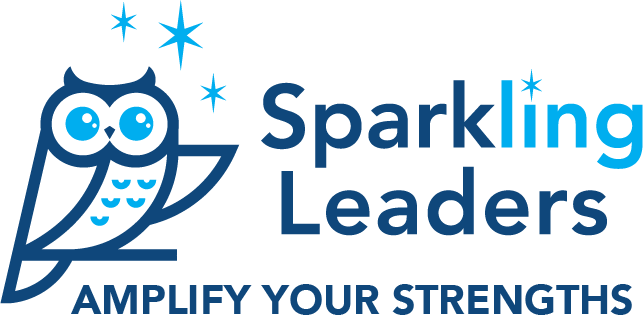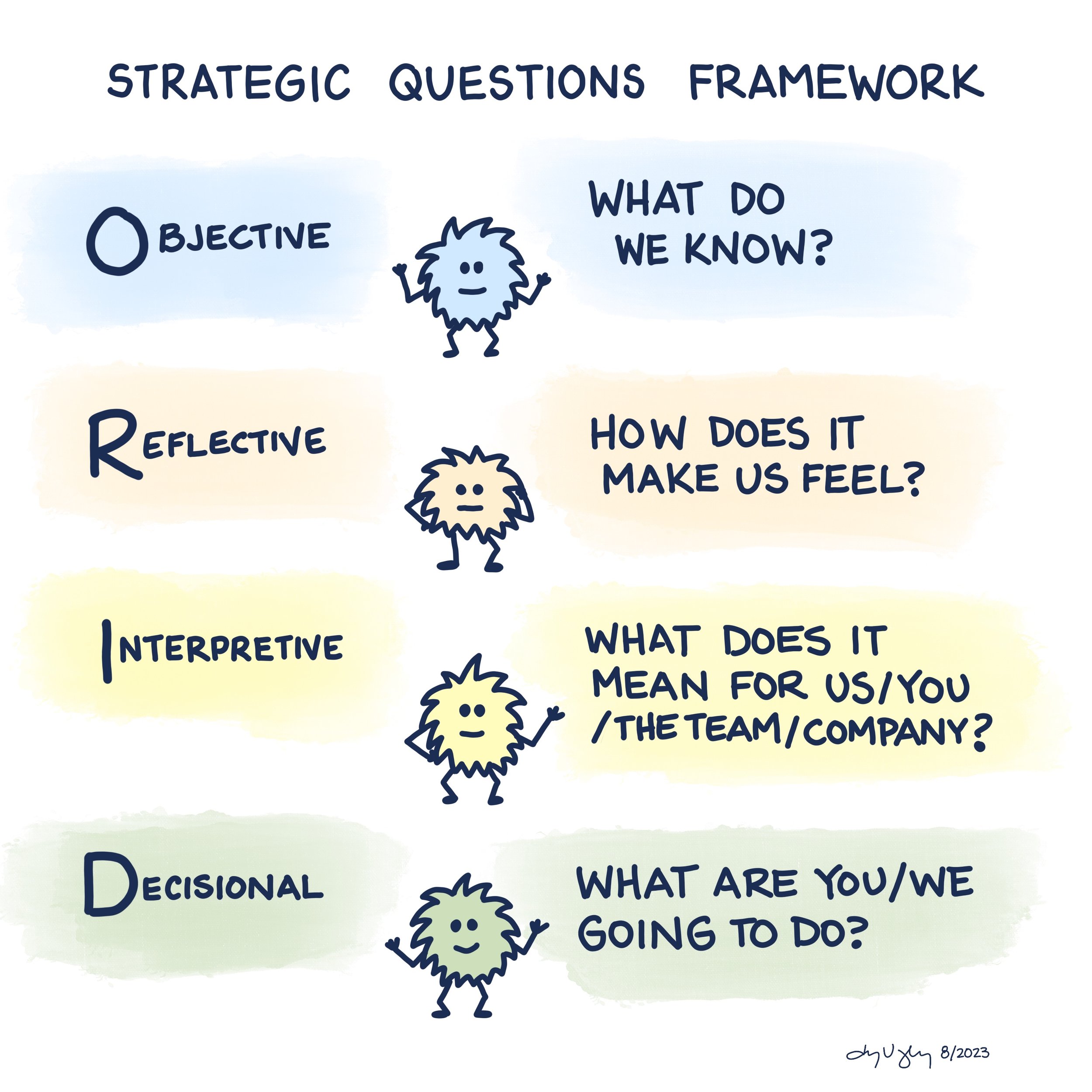The ORID Framework for Problem-Solving
It’s back-to-school time which means many parents are facing extra challenges as they navigate yet another transition. Back-to-school is a great time to try the ORID framework for strategic problem-solving.
I’ve found a few new challenges recently and have been thinking about different ways to approach them. Although many frameworks are somewhat similar, I find trying different ones helps me gain different perspectives. In the ORID framework, you start with Objective questions, then move on to Reflective questions, Interpretive questions, and finally Decisional questions. I’ve found it useful for working through professional and personal challenges.
Example one: a team meeting where there is a challenge that people are discussing in an unstructured way (competitor’s upcoming product launch, strategic priorities for the coming budget cycle, etc.). You might suggest trying a structured approach and lead the following conversation.
Objective questions: What do we know?
Reflective questions: How does it make us feel?
Interpretive questions: What does it mean for our team/company?
Decisional questions: What do we want to do? What would be an achievable and positive outcome using our current resources?
Example two: your child hasn’t finished something that needs to be completed (packing for college, the summer reading essay, etc.). You might lead something like the following conversation.
Objective questions: What needs to be accomplished? When is it due?
Reflective questions: How does the task make you feel? Why do you feel it’s hard to finish it?
Interpretive questions: What will happen if you don’t do it or do it at the last minute?
Decisional questions: What do you want to do about it? Is there anything I can do to help?
Example three: your child is starting something new (university, a new grade, activity, etc.) and you are trying to prepare yourself for the transition. You might reflect on the situation using the following questions.
Objective questions: What are they doing? How will it help them?
Reflective questions: How do I really feel about it? Do my feelings change based on my situation? How do I want them to feel about it?
Interpretive questions: What will it mean for me? What will it mean for them?
Decisional questions: How can I make this transition as easy as possible for me? How can I make the transition as easy as possible for them?
Let me know if you have used this model and how it’s worked for you!

